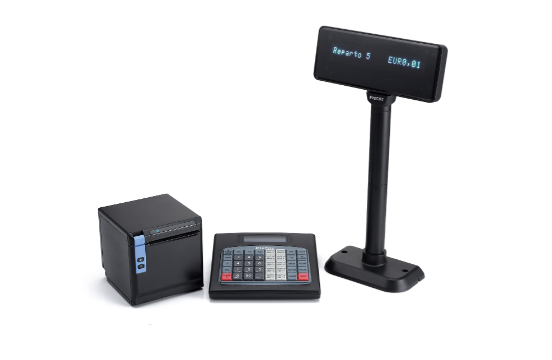Technical approaches of Fiscalization
The technical implementation of the fiscal law always follows one or more of the following technical aspects:
•hardware-based fiscal implementation
•software-based fiscal implementation
•special fiscal requirements with different implementations
In addition, the technical implementation itself is also forced by the fiscal law.

Hardware-based fiscal implementation
Some fiscal laws define the use of special hardware devices.
These are usually:
•fiscal printers – receipt printers with special fiscal memory where fiscal data is stored, like FISCAT MAX808 and MAX809 can store 2000pcs fiscal receipts, ensuring the integrity and consistency of fiscal data.
•fiscal communication modules – devices that are used to send fiscal data to the fiscal authority, such as FISCAT ECR (NEON/IPALM/SUPER/GALAXY) normally use WIFI/2G/3G/4G to communicate with fiscal authority on-line.
•fiscal memory boards – circuit boards that can be included in or connected to the POS, ECR, or printer. Fiscat developed fiscal memory board which has integrated in all FISCAT fiscal devices (Fiscat ECR, Fiscat FP, Fiscat signature device ) ensuring the encryption and security of data.
•signature devices – devices that produce digital signatures which are used to secure the fiscal transaction, exactly as FISCAT Cube100, iSign and DataSign for the validation of business to business financial transaction, converting your non-fiscal POS system into fiscal system.
Most of the fiscal countries in the world today are following the path of hardware-based implementation.
Software-based fiscal implementation
This can be a more modern way of implementing the law.
The background is that the law defines how something has to be done but not which device should be used. This model is more liberal, and it can be expected that in the near future more countries will follow this approach.
Today, there are several different scenarios:
•send each transaction to the fiscal authority in real-time, to get a digital signature from the authority and to include it in the transaction.
•store every transaction in the database where every entry has a sequence number and a digital signature
•save data in a special format in special fiscal journal (database)
•digitally sign every transaction by a special algorithm
Special fiscal requirements
In some cases, in addition to these technical implementations, there are some additional technical approaches. They are mostly related to:
•data security and protection
•archiving
•reporting
•special business processes (mostly in specialized retailing e.g. petrol stations)


